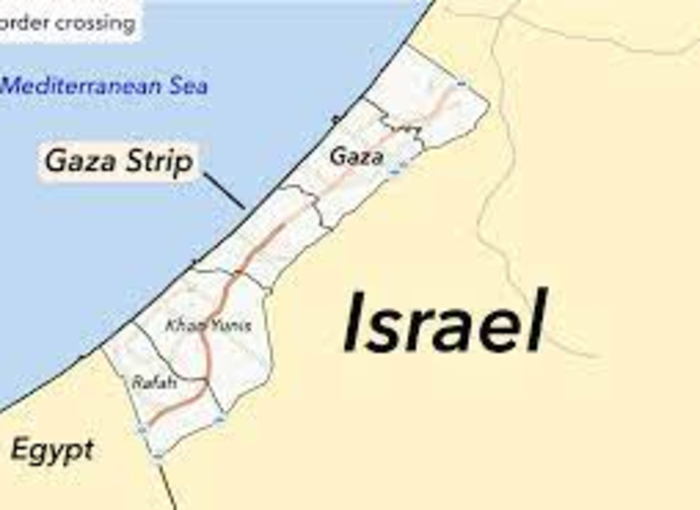An Economist article (Israel’s angsty 75th anniversary”, April 25) provides a relatively unproblematic analysis of Israel’s strengths, weaknesses and challenges. However, on the issue of the country’s West Bank and Gaza-related security challenges, it descends to ahistorical cliches which, rather than enlightening readers, grossly misleads them.
Here are the relevant paragraphs:
Meanwhile the Palestinians are undergoing their own changes. The un projects that the population of the occupied territories will more than double by 2050, to 9.5m. Half (4.7m) will live in Gaza, a besieged, impoverished wedge of land barely able to support its current 2m inhabitants.
…
Predicting the future, in the Middle East, can seem a fool’s game. But some of the trends in Israel’s future look ominous. Demographic changes will hurt both the army and the advanced part of Israel’s economy. A rising right will be loth to give up the occupied territories
For starters, as they of course know, Israel withdrew every civilian and soldier from Gaza in 2005, and, since 2007, the territory has been ruled by the terror group Hamas. In fact, CAMERA and CAMERA UK have prompted corrections at media outlets over the years which had initially claimed that it is still occupied.
But, the final sentence – an assertion based on their previous false claim about Gaza being “occupied” – represents a far more egregious distortion.
The country’s painful 2005 disengagement, initiated by Ariel Sharon, a right-wing prime minister, was predicated upon the premise that Israel’s withdrawal from the territory would rob Palestinian extremists of their political capital, deprive them of their putative justification for engaging in terror attacks, and would be good for security.
That clearly didn’t happen – as a plurality of Palestinians voted, despite Israel’s withdrawal, for Hamas, the Islamist extremist party dedicated to the Jewish state’s destruction. Since then, there have been multiple wars and thousands upon thousands of rockets fired at Israeli cities by Hamas and other terror groups. The conventional wisdom about the Israeli-Palestinian conflict, that territorial concessions will necessarily deliver peace, was blown to bits.
It’s just not “the right” that – due to the impact of the Gaza withdrawal, the Palestinian leadership’s refusal to make peace and the five-year campaign of Palestinian terror known as the 2nd Intifada – remains skeptical that relinquishing more land would end the conflict. It’s the overwhelming majority of Israelis.
This leads us to the fundamental reason why outlets such as the Economist consistently get the region wrong: their failure to understand that the occupation of West Bank is a symptom of the conflict, and not its cause.
If Arafat said yes at Camp David or Taba, or Mahmoud Abbas said yes to Ehud Olmert, there would be no occupation. If Palestinians in Gaza decided, during the 2006 legislative elections, NOT to vote for Hamas, there would likely have been peaceful relations between Israel and Gaza, and the territory would be far more prosperous.
In other words, bad Palestinians decisions lay at the root of the conflict, an intuitive conclusion in lieu of events that transpired since Oslo. But, for media outlets such as the Economist to acknowledge this causation would fly in the face of their insistence that Palestinians not be assigned agency – an infantilisation of Palestinians that journalists will be loth to give up.





